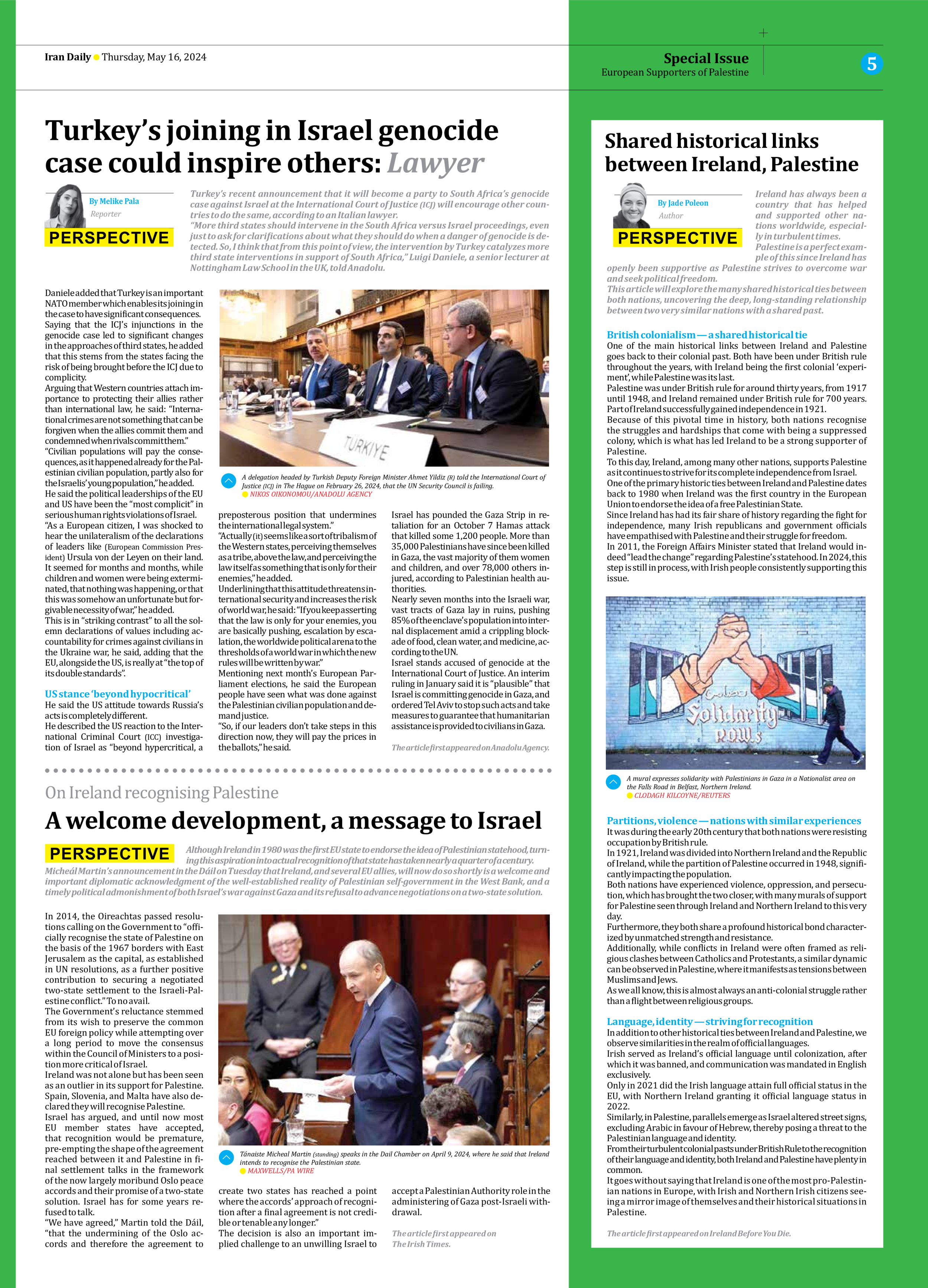
Shared historical links between Ireland, Palestine
Ireland has always been a country that has helped and supported other nations worldwide, especially in turbulent times. Palestine is a perfect example of this since Ireland has openly been supportive as Palestine strives to overcome war and seek political freedom. This article will explore the many shared historical ties between both nations, uncovering the deep, long-standing relationship between two very similar nations with a shared past.
By Jade Poleon
Author
British colonialism — a shared historical tie
One of the main historical links between Ireland and Palestine goes back to their colonial past. Both have been under British rule throughout the years, with Ireland being the first colonial ‘experiment’, while Palestine was its last.
Palestine was under British rule for around thirty years, from 1917 until 1948, and Ireland remained under British rule for 700 years. Part of Ireland successfully gained independence in 1921.
Because of this pivotal time in history, both nations recognise the struggles and hardships that come with being a suppressed colony, which is what has led Ireland to be a strong supporter of Palestine.
To this day, Ireland, among many other nations, supports Palestine as it continues to strive for its complete independence from Israel.
One of the primary historic ties between Ireland and Palestine dates back to 1980 when Ireland was the first country in the European Union to endorse the idea of a free Palestinian State.
Since Ireland has had its fair share of history regarding the fight for independence, many Irish republicans and government officials have empathised with Palestine and their struggle for freedom.
In 2011, the Foreign Affairs Minister stated that Ireland would indeed “lead the change” regarding Palestine’s statehood. In 2024, this step is still in process, with Irish people consistently supporting this issue.
Partitions, violence — nations with similar experiences
It was during the early 20th century that both nations were resisting occupation by British rule.
In 1921, Ireland was divided into Northern Ireland and the Republic of Ireland, while the partition of Palestine occurred in 1948, significantly impacting the population.
Both nations have experienced violence, oppression, and persecution, which has brought the two closer, with many murals of support for Palestine seen through Ireland and Northern Ireland to this very day.
Furthermore, they both share a profound historical bond characterized by unmatched strength and resistance.
Additionally, while conflicts in Ireland were often framed as religious clashes between Catholics and Protestants, a similar dynamic can be observed in Palestine, where it manifests as tensions between Muslims and Jews.
As we all know, this is almost always an anti-colonial struggle rather than a flight between religious groups.
Language, identity — striving for recognition
In addition to other historical ties between Ireland and Palestine, we observe similarities in the realm of official languages.
Irish served as Ireland’s official language until colonization, after which it was banned, and communication was mandated in English exclusively.
Only in 2021 did the Irish language attain full official status in the EU, with Northern Ireland granting it official language status in 2022.
Similarly, in Palestine, parallels emerge as Israel altered street signs, excluding Arabic in favour of Hebrew, thereby posing a threat to the Palestinian language and identity.
From their turbulent colonial pasts under British Rule to the recognition of their language and identity, both Ireland and Palestine have plenty in common.
It goes without saying that Ireland is one of the most pro-Palestinian nations in Europe, with Irish and Northern Irish citizens seeing a mirror image of themselves and their historical situations in Palestine.
The article first appeared on Ireland Before You Die.







